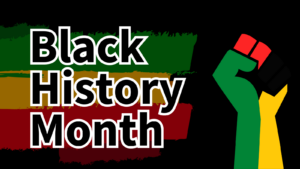Black History Month: Embracing diversity, celebrating unity
Posted on: Friday 18 October 2024
Author: Dr John Ndikum


Another year, another set of goals, and perhaps a plethora of New Year’s resolutions that we lament never having met. Was I true to myself in 2024? Did I live by my highest inner wisdom? Am I becoming the person that I aspire to be? These are undoubtedly questions that enter our minds daily.
But some months force us to reflect more deeply on poignant issues – and on this Black History Month, let us take some time to reflect once more on the communities of Afro-Caribbean descent:
I am a human who happens to be African. Being a member of the latter has undoubtedly shaped me in ways that those not of my background might not quite understand, however much they might try. Sure, I have been the victim of discrimination and racism. Without a doubt, I note the occasional ‘side-eye’ or judgmental glance. More often than not – in the uniquely polite culture of the United Kingdom – it is the confusing gaze. I see mental cogwheels turn as my observer struggles to reconcile their preconceived notions with the man standing before them. It used to hurt. Now, I see it as part of and parcel of being a human being whose primitive brains search for danger and utilise mental shortcuts to arrive at (frequently erroneous) conclusions.
These mental models saved the species, allowed us to survive the vicissitudes of the planet’s numerous climate changes, and allowed us to evade dangerous animals. Unfortunately, these persisting internal narratives perpetuate the inequities that we all decry.
So, what does Black History Month mean to me these days? It means observing our internal world and its prejudices and seeing how being driven by antiquated drives and notions harms not only individual humans but entire communities. It is a moment where I reflect on how the historic harm done to those of my community afflicts us in numerous ways, from healthcare to housing, education and countless other domains. It is a reminder that I must become that which I wish to see in my brothers and sisters of different ethnic groups so that we can scale the mountain of our shared destiny in unity.
So, this Black History Month, I implore us to reflect on the consequences of permitting pernicious subconscious drives to dictate our actions and thoughts. The community of which I am a part – to my mind – is but one such example and a reminder, as well as a clarion call, to become better versions of ourselves for the benefit of the entire species.
So, let us see this month as the celebration of one pearl on the necklace of all communities. Let us embrace our invisible unity, celebrate our shared humanity and strive to elevate each and every human on the planet. More importantly, let us challenge the introjected voice that tells us that we are better because our skin colour is a given hue.
To me, that is the message of Black History Month—a moment of individual reflection (and hopefully inner revolution) that will eventually lead to the celebration and raising up of the entire human race.
About Dr John Ndikum
Dr John Ndikum has extensive experience in the public, private and voluntary sectors and holds degrees from the University of London and Yale University.
He currently works as a pharmaceutical physician in medical affairs. Prior to this, he worked in clinical research as a sub and principal investigator in multiple therapy areas. Dr Ndikum also serves as a visiting lecturer and clinical tutor at UCL and Cambridge University.
His commitment to redressing intersectional inequalities led to him serving as Chair of the EDI forum for three years, where he was proud to collaborate with passionate, enthusiastic and dedicated colleagues.
As a keen writer, he has penned two books, most notably his anthology of poems, which chronicles a deep exploration into the creative dimensions of his psyche.
Dr Ndikum would like to extend his gratitude to his supportive wife, family, mentors, friends and colleagues, without whom none of his outputs would be possible.
He remains unwavering in his resolve to serve the global community alongside his colleagues and peers.

